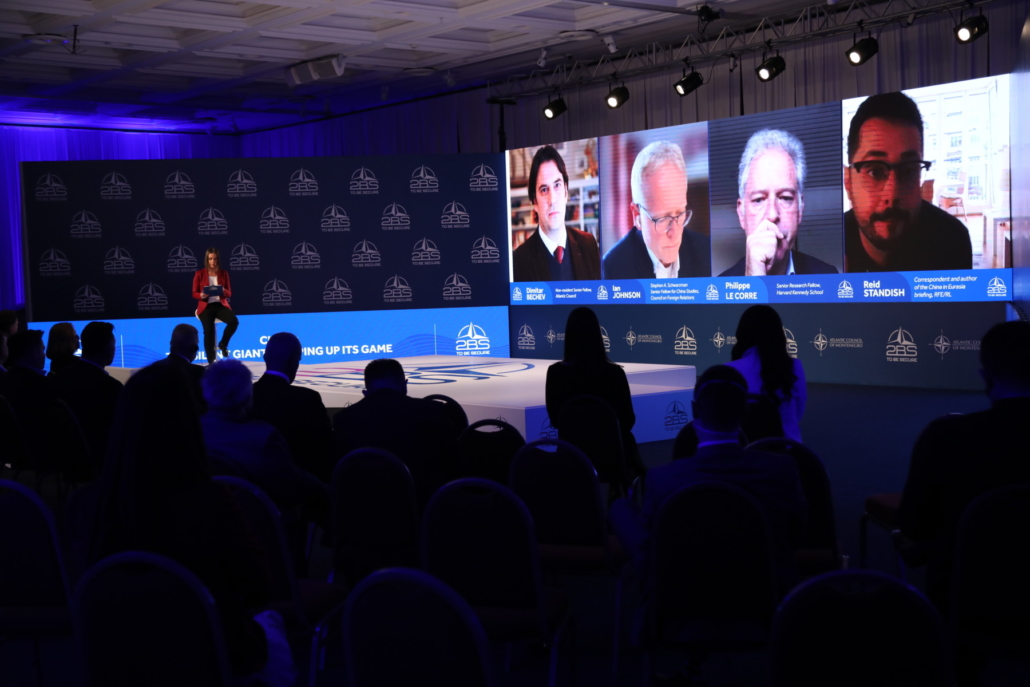The biggest security challenge for the countries relating to China is the Chinese coupling of economic and security issues, said Ian Johnson, Senior Fellow from the Council on Foreign Relations.
On the panel about China and Chinese influence, he emphasized that China became the second most important economy in the world and is successfully developing its economic ties, accompanied by the political influence.
Speaking about the current security threat that China represents, he said that the European countries did not express huge concerns about China, as it is the case with Russia.
The Chinese strategy is to promote its interests through infrastructure projects and lending, and China is not always pushing it, said Johnson, adding that it happens often that the countries need money or that the state leaders think that they need money. He thinks that China is knocking on an open door and that there is a lack of support and money coming from the Western countries.
Philippe le Core, Senior Research Fellow from the Harvard Kennedy School, thinks that the US power is still strong, while the spreading of the Chinese soft power so far turned out to be unsuccessful. He adds that this leaves room for the US to make a coalition in Asia and Europe.
The US and the EU are creating alternative strategies in the fields of technology and infrastructure that need to confront China. When it comes to technology, Trump’s administration was pretty aggressive concerning the issue of 5G network and installing the Chinese technology in Europe. However, he added that the issue whether Europe and the US would be able to confront China with such strategies and ideas remains open.
Reid Standish, correspondent of the Radio Free Europe for China says that NATO has been taking stronger stance towards China in the previous period. He added that China did not represent a direct military threat to NATO but is definitely a new challenge.
Particular challenge for transatlantic community is the increasingly growing partnership between China and Russia, Standish said. He stated that the solutions for this issue are limited, adding that there is always a difference between what NATO should do and can do.
Also, Standish compared the US approach and the EU approach towards China. According to him, the US is clearly confronting China while the EU, despite being aware of the negative Chinese influence in Europe and the world, sees it as a necessary economic power.
Dimitar Bechev, non-resident Senior Fellow of the Atlantic Council, commented on the Chinese influence on the Western Balkans. He emphasized that the current situation in the Western Balkan countries leaves room for stronger cooperation with the countries not belonging to the EU or West.
China is knocking on an open door in this region. It is exploiting the economic situation, corruption and lack of transparency in these countries and that’s the reason why it is particularly successful in this region, Bechev said.
